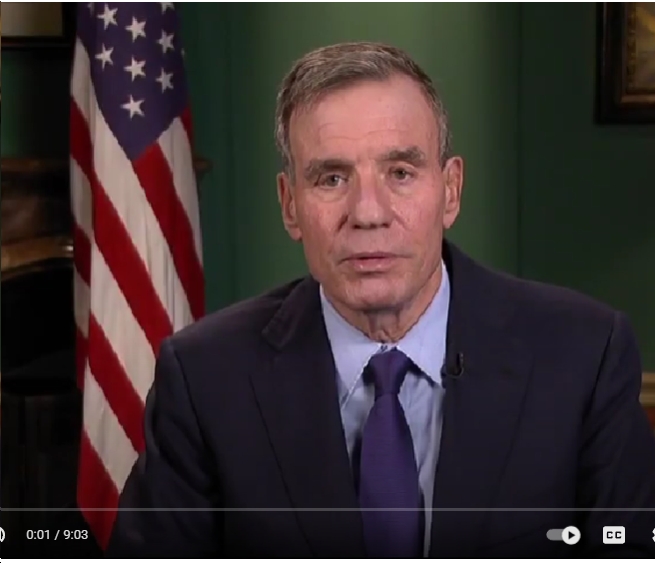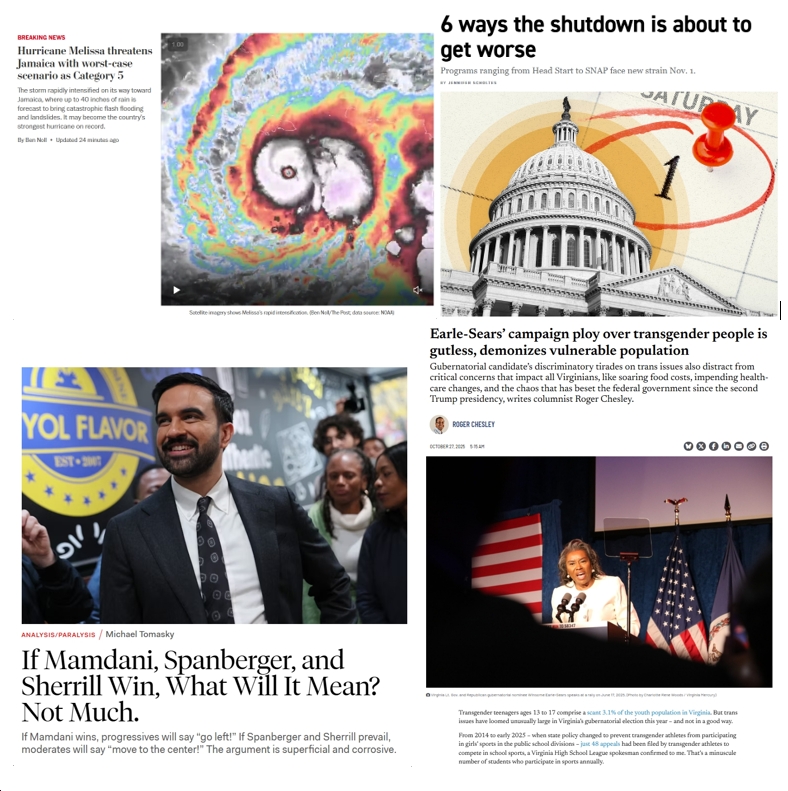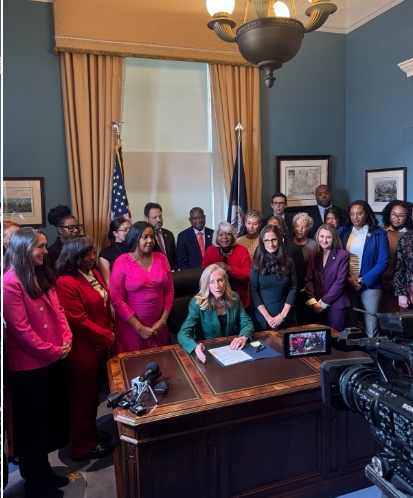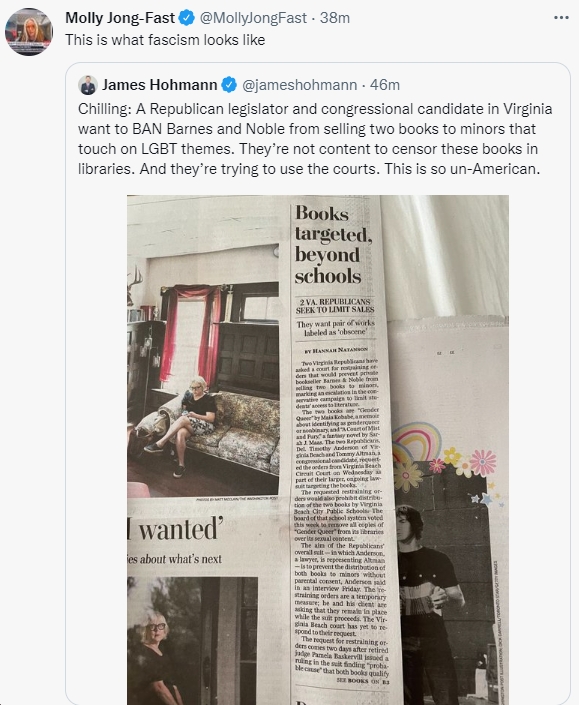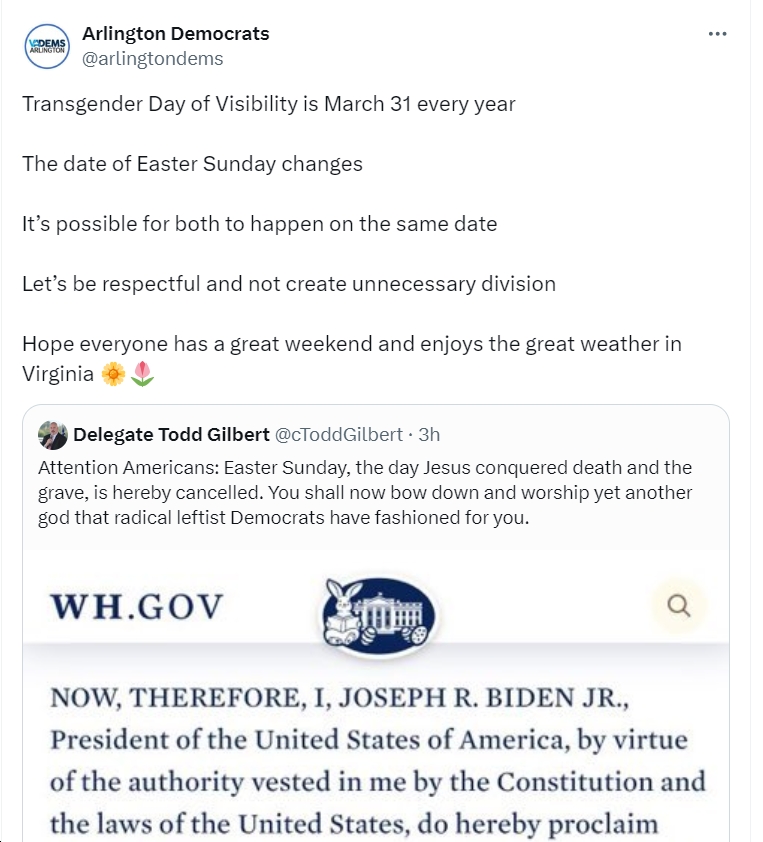Good news from Equality Virginia:
Senate Bill 1138 to Modernize and Repeal Discriminatory HIV Laws in Virginia Receives Senate Judiciary Committee Approval
Current laws disproportionately impact Black, Indigenous, Latinx communities and other people of color
RICHMOND, Va. (Jan. 28, 2021) – The Virginia Senate Judiciary Committee approved Senate Bill 1138 on Wednesday, a bill sponsored by State Senators Mamie Locke (D-Hampton) and Jennifer McClellan (D-Richmond) that would amend and repeal current HIV statutes that disproportionately impact people of color.
SB 1138 would create several updates to the Virginia Code limiting the scope of the law to prevent criminalization and eliminating additional punishments for people living with HIV when charged with a crime.
HIV criminalization refers to the use of laws and policies to target and punish people based on their HIV positive status. Virginia is one of 37 states with laws criminalizing the alleged potential exposure, non-disclosure, or potential transmission of HIV.
“These outdated, dangerous, and discriminatory laws disproportionately impact Black, Indigenous, Latinx and other persons of color,” said Vee Lamneck, executive director of Equality Virginia. “To ensure an equitable state for Black and Brown individuals and to promote public health, it’s essential lawmakers pass SB 1138.”
The HIV epidemic remains a significant public health issue across the country and in Virginia. According to the Virginia Department of Heath’s most recent data, approximately 25,000 people live with HIV in the commonwealth. Data highlights that communities of color, LGBTQ+ individuals, people who use drugs, and sex workers are most likely to be impacted by HIV.
Despite only making up 19.5% of the state’s population, Black people represent 58% of persons living with HIV in Virginia. The rate of Black males living with HIV is 5.5 times higher than white males and the rate of Black females living with HIV is 15.1 times that of white females.
Meanwhile, the rate of Hispanic/Latino males living with HIV is 2.2 times higher than white males and the rate of Hispanic/Latina females living with HIV is 4.1 times that of white females.
Current state laws, some of which were originally enacted in the 1980s, do not reflect modern public health and scientific best practices, and disproportionately harm communities of color.
“Virginia’s current HIV laws are rooted in fear and racial biases,” said Deirdre Johnson, co-founder of ECHO VA coalition. “Criminalization increases stigma and harms marginalized communities. Data shows that these laws target and harm women of color, women who do sex work, and transgender women.”
Studies in other states highlight how HIV laws are enforced based on race and gender. A study by The Williams Institute at UCLA School of Law of Georgia’s criminal justice system reported that Black men and women are significantly more likely to be arrested for HIV-related offenses than their white peers, and Black men are nearly twice as likely to be convicted than white men.
“It’s critical we pass SB 1183 as we continue the important work to make a more equitable justice system for all Virginians,” said Senator Locke. “HIV criminalization undermines public health and helps fuel the HIV epidemic in our state. I am committed to working with my General Assembly colleagues to ensure current laws are repealed and modernized to reflect modern science and public health strategies.”
“Living with HIV should not be a crime,” added Senator McClellan. “We know current laws deter testing and create additional barriers for vulnerable populations. HIV criminalization is a critical public health issue that lawmakers can help solve by passing SB 1138.”
Last November, HIV advocacy groups ECHO-VA and the Positive Women’s Network-USA testified about current HIV laws to Virginia’s Commission to Examine Racial Inequity in Virginia Law, a council charged with identifying and making recommendations to address laws that were intended to or could have the effect of promotion or enabling racial discrimination or inequities. The Commission was highly receptive to the testimony and agreed to include a review of the state’s HIV criminalization statute with a recommendation to establish a task force to examine the statute’s impact on racial and ethnic minorities in its 2020 report to the Governor.
“HIV isn’t a death sentence and it should never be a prison sentence,” said Kamaria Laffrey, with the Sero Project. “We know current laws are disproportionately enforced against Black individuals and disenfranchised communities. Passing SB 1138 is essential to stopping the inappropriate and unjust criminal prosecutions of people living with HIV.”
“We know the current laws are not effective from a public health perspective,” said Breanna Diaz with Positive Women’s Network-USA. “These discriminatory policies discourage people from seeking HIV testing and treatment. They create mistrust of, and alienation from, public health institutions and put people living with HIV at heightened risk of violence from intimate partners.”

